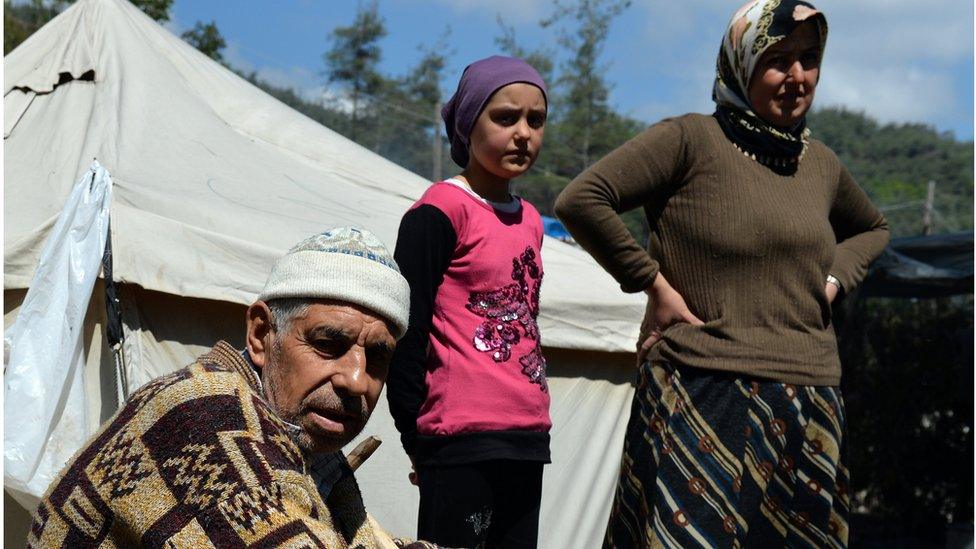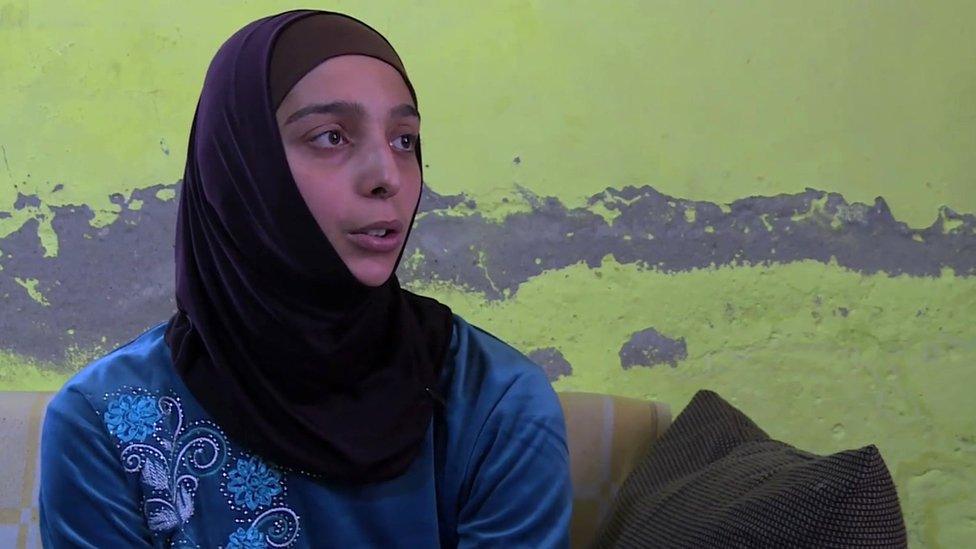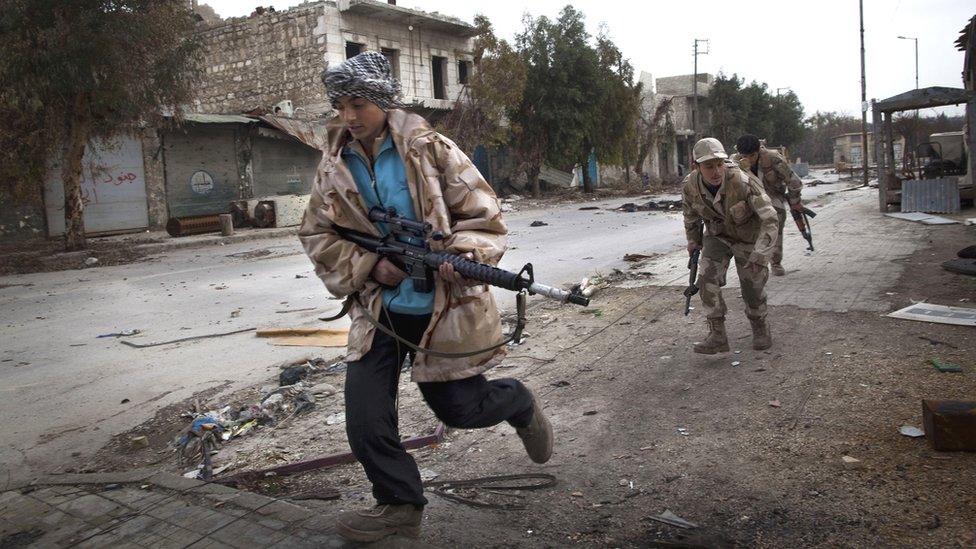The Syrian Turkmen taking flight from Russian bombing
- Published

At least 4,500 Turkmen refugees now live in a camp set up by Turkey just inside Syria
Since Russia began air strikes on the Turkmen mountains in north-west Syria last month, nearly 5,000 people from the country's ethnic Turkmen minority have fled their homes.
Many have crossed the border into Turkey's Hatay province, their plight overshadowed by a diplomatic row between Turkey and Russia.
Twenty-five year old Surayya and her family finally left their village and fled to Hatay in the last week of November.
Until recently their home in the Turkmen mountains had been a little-known corner of a wider war.
But then Russian warplanes began bombing their village.
"We couldn't even fire up our ovens," she recalls. "At night we had to make sure all the lights were switched off because as soon as they see a light they bomb it."
After the village mosque took a direct hit the family decided to leave.
Surayya, her parents, sisters and eight-month old baby daughter are now living with relatives in a village close to the Turkish-Syrian border.
Her husband stayed behind to look after the family's livestock.
Culture ban
From the village the family can still see the mountains of home, and hear the steady drumbeat of gunfire.
Surayya and her family are Syrian Turkmen - a predominantly Sunni Muslim ethnic group with cultural and linguistic links to Turkey.
Although there are no reliable figures for their population, there are thought to be anywhere between 200,000 and 3.5 million Turkmen in Syria.

Surayya: "We don't know who is fighting who anymore"
When the uprising began many joined the opposition because of grievances against the Assad regime. The Syrian authorities had treated the Turkmen as a potential fifth column allied to Turkey and repressed their culture.
"In the streets and in school we were only allowed to speak Arabic or English, so our children never learned their own language," says Surayya's father Abu Hassan, a farmer.
"This is one reason most Turkmen joined in the protests."
By 2012 some Turkmen had organised themselves into armed brigades, and were fighting on various fronts across the country.
Turkey has been open in offering support, with officials referring to the Turkmen brigades as "brothers" and insisting they are moderate.
However reports suggest the brigades have close ties to the al-Qaeda-linked jihadist group, the Nusra Front.
Conflicting claims
Usama Solak, a member of the Syrian-Turkmen assembly - a coalition of Turkmen political groups - does not deny the connection.
"Right now we have two major enemies - the Syrian regime and Daesh [IS]," he says. "We are helping the Nusra Front and they are helping us. They are not like IS."

Turkmen rebels have been active in Aleppo
Surayya's father Abu Hassan is dismissive of Russian claims that their air strikes in the area are aimed at Islamic State fighters.
"There is no IS in our villages, he says. "They came but we pushed them back and they left."
However this argument does not seem to hold much weight in Moscow, and after Turkey downed a Russian plane in the Turkmen mountains on 24 November, Russia intensified air strikes.
There has also been fighting on the ground between Syrian troops, backed by Hezbollah and Iran, and Turkmen rebels.
'We've had enough'
At least 4,500 Turkmen who have been displaced live in a camp set up by Turkey on the border just inside Syria.
Turkish Red Crescent officials say if the fighting continues they fear up to 15,000 more people could be displaced.
As Turkey struggles with a Syrian refugee population that now exceeds two million it is clear the crisis with Russia is one Ankara could well do without.
On the border, Surayya and thousands like her seem bewildered by their fate.
"We don't know who is fighting who anymore and for what," she says tearfully. "We've had enough and we just want them to stop bombing us so we can go back home to our villages."